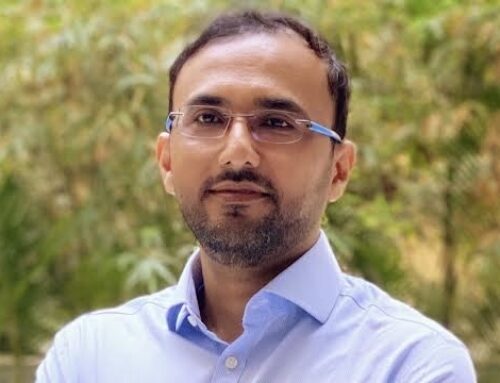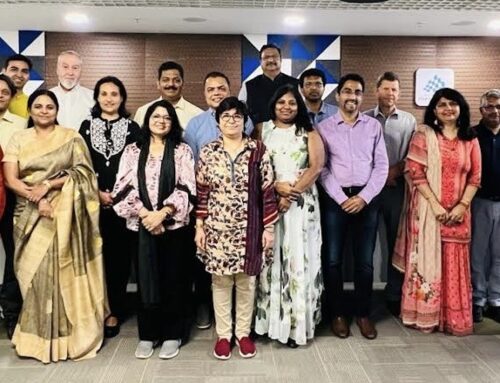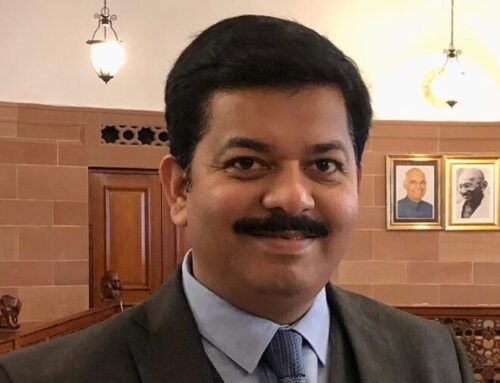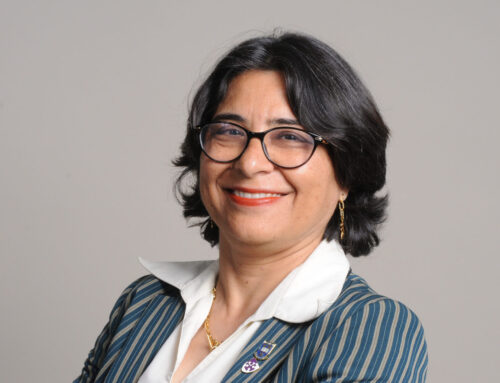John Hoffmire: When I first met you in 2018, I remember being impressed by three things: 1) You seemed like a very wise soul – like someone full of hard-earned wisdom; 2) You radiated joy and fun – happiness just spilled out of you; and, 3) You’ve worked in such a wide variety of ways and means to make the world a better place, especially for young people. This might be an awkward first question but will you expand on my impressions of you?
Shilpa: I think I’ll skip your first impression. You are entitled to it, of course, but you may be wrong.
As for your second impression, I was very lucky to stumble upon a vocation that I love. When I started as a young college student, I thought I would become an engineer. Like everyone at that time, I was told how important it is to be an engineer and I was good at chemistry and math. But then I signed up for an undergraduate course in psychology, not knowing anything about it, and I became fascinated. I loved learning about the way the mind works and how we are happy or not. And how music, poetry, painting and theatre affect the mind. I also loved learning about who am I and how am I related to others? This was far more interesting to me than engineering.
I’ve derived a lot of satisfaction and happiness working in a field that I find fascinating. I’ve been blessed with work that I have loved, a wonderful family, and rewarding relationships and opportunities that have brought me joy. This satisfaction has endured even when we had struggles and hardships along the way. And I’ve learned that having fun is important to one’s mental wellbeing. So, I try not to shy away from healthy fun. I also learnt that happiness is intrinsic – it’s like the hum of a background note, in music. The rest just builds on it.
John: I’ll briefly address my last impression. You are actively involved in teaching, research, counseling, training and consultancy with government and other grass-root level NGOs. You work with rural poor youth and also focus on aspects of gender while working with adolescents and youth. Furthermore, you spearhead several workshops and programs for corporate and educational institutions. Have I missed anything?
Shilpa: (laughing) No! Well yes. I’ll just add that I belong to a part of a group of psychologists who prefer a non-euro-american framework in teaching and practice of psychology in India. It just happens to trend as ‘decolonization of psychology’ these days. Part of my research has been in indigenous or Indian Psychology (IP), and I’ve published several peer-reviewed papers in the areas of yoga and meditation, Rasa – especially bhakti and vatsalya that fall in the broad area of the Indian psychology of emotions.
From 2016 to 2018, I worked as a research, monitoring and evaluation specialist for Hand in Hand India, which is one of India’s most credible and large NGO’s. I also worked on an exciting CSR project on creating market linkages for women entrepreneurs utilizing technology. Earlier to that, from 2014 to 2016, I worked as a project officer on research for UNDP India focusing on work and employment of rural poor households. I have also worked on research and documentation for UNICEF in Tamil Nadu and Kerala. Through this work, I have attempted to look at critical issues such as gender, children in government homes and their well-being.
John: My impression was correct – you use many means and ways to make the world a better place. Now changing directions, what was the impetus for you to start the Dreampath Foundation?
Shilpa: To me psychology is the search for meaning. When we are young we are searching for meaning. But, at the same time, we are making a lot of adjustments. We are adjusting to college, living independently, figuring out our vocation, marriage, and having and raising children. In middle age, there are not so many life-changing adjustments making demands on you. So, the yearning for meaning in one’s life increases. When I was younger, I thought I would do something really meaningful when things settle down in my life. But in my forties, I realized that nothing ever really settles down, and the yearning for meaning kept growing in me. So I thought, if I’m going to do anything meaningful I’d better do it now — there was no point in waiting.
Fortunately, my co-founders who are IT geniuses wanted, like me, to do more. In 2013, we put our heads together and created Dreampath. Our non-profit organization is currently operating from Bengaluru & Chennai, giving workshops in schools, creating webcasts and running a helpline, where students, and teachers come together and understand about careers, life skills and career decision-making. We essentially work with interventions designed to support and fulfill the needs of today’s adolescents, especially in the space of career exploration and life skills.
John: In 2018, you were selected for the Chevening Research Science and Innovation Leadership Programme (CRISP) at University of Oxford, UK, for leadership in social sector. Will you tell me what that experience meant to you?
Shilpa: It was one the most enriching experiences of my life. The interaction sessions at St. Cross, where we had some intensive discussions on how ideas are translated into an enterprise, gave me access to interesting perspective and people who embodied them. We had resource persons, who had more than 10 patents in their name and discussed about how to disrupt the conventions. We had other erudite scholars from economics, marketing, politics and international affairs. In the evenings, we would rush to attend the most fascinating talks and conversations at different colleges. We met a diverse set of people – all high achievers and non-conventional minds! Indeed, to conceptualize and organize such a two-month program is just what is required for freeing up the wretchedness of a boxed mind. I would think if I had the resources, we should do such a program for our rural youth. The program is based on the fellowship of thought and focused action. In this fellowship, we learnt again and again to move past the subtle prejudices that non-consciously we felt. For example, I was quite upset for some time, when we went to India house in London. As I travelled back in the bus from London to Oxford, thoughts swirled in me – of colonization, of this anger and how easy it was to transfer this legitimate sense of injustice into prejudice. That two-hour bus ride was a contemplative ride into the humanity’s struggle to find peace with our collective pasts. I feel gratitude for this fellowship that I developed with the resource persons, with Richard, who worked tirelessly, every day, with Rasangi, with Andrew and you and Shelley.
John: Thank you for talking with me. I have enjoyed being able to interact with you again and look forward to a time when we can meet in the not too distant future.
Shilpa: Thank you for talking with me. I have enjoyed connecting with you again. In light of the current pandemic, one finds great solace in these friendships, which aspire of the world that could be. I hope, we meet and work together some time in future.
Read the entire interview here at The Center on Business and Poverty
Shilpa Pandit is a Associate Professor of Psychology at Ahmedabad University, Ahmedabad and Co-Founder of Dreampath Foundation, Bengaluru and an alum of the Chevening Research Science and Innovation Leadership Programme (CRISP), 2018.
Interviewer: Dr. John Hoffmire is the Chairman of the Center on Business and Poverty, and Research Associate at the Oxford Centre for Mutual and Co-owned Business





